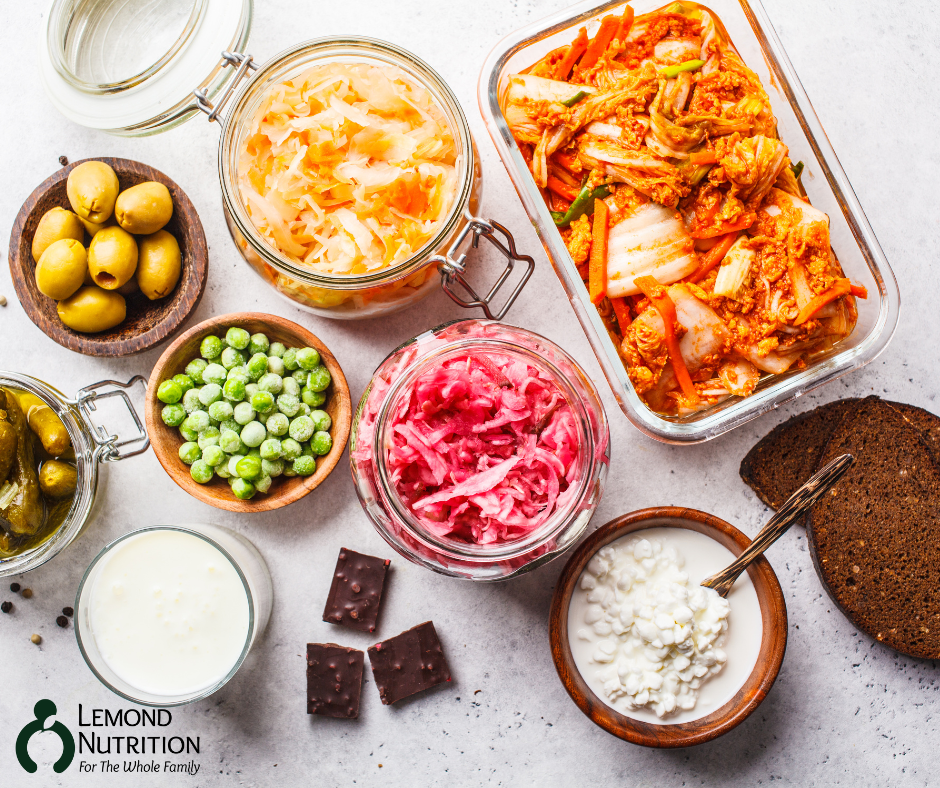Probiotics - What Are They and Why Are They Important?
There is a lot of buzz around probiotics right now. What actually are probiotics, why do we need them, and how do we get them?
To understand probiotics, we have to understand the gut microbiome: which is all the bacteria that are in your gastrointestinal tract. In fact, there are trillions of microorganisms that live inside us. We want to build up the beneficial bacteria, and limit the ones that have potential to overgrow that can contribute to conditions like SIBO or inflammatory bowel disease. A diverse, robust population of good bacteria aids in proper digestion, improves immune function, and can potentially improve mood and nervous system functions.
There are many things that can impact our gut microbiome, like the foods we eat, stress levels, certain medications and antibiotics, alcohol intake, and more. If you consistently have bloating, diarrhea, constipation, or abdominal pain, this could be a sign the amount or balance of bacteria in your gut could use attention.
You can take a probiotic supplement and get probiotics through food. Talk with your GI doctor or dietitian about what probiotic supplements might be beneficial for you if applicable.
Probiotics in foods:
Probiotics are found in fermented foods we eat. Adding these more consistently in your routine can be beneficial for building up a healthy microbiome. Here are some examples:
yogurt
kefir
kombucha
sauerkraut
kimchi
miso
tempeh
A note on prebiotics:
Many probiotic supplements are adding prebiotics, or you might find more prebiotic sodas on the market. Prebiotics are a type of fiber, and are “food” for probiotics. These are important to be eating as well, but you do not need a supplement with prebiotics if you are eating a varied diet regularly include the following foods:
almonds
edamame
asparagus
kiwi
garlic
onions
bananas
oats
lentils
artichokes
apples
flax seed
avocado
Having a varied diet rich in fruits and vegetables, eating fermented foods, and having adequate fiber in your diet are all things to help build up the beneficial bacteria in your gut. If you want to talk about probiotics or improving your gut health with a dietitian on our team, contact us to set up an appointment!

